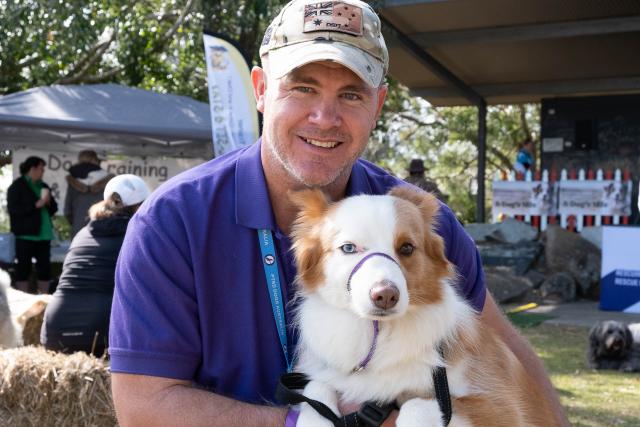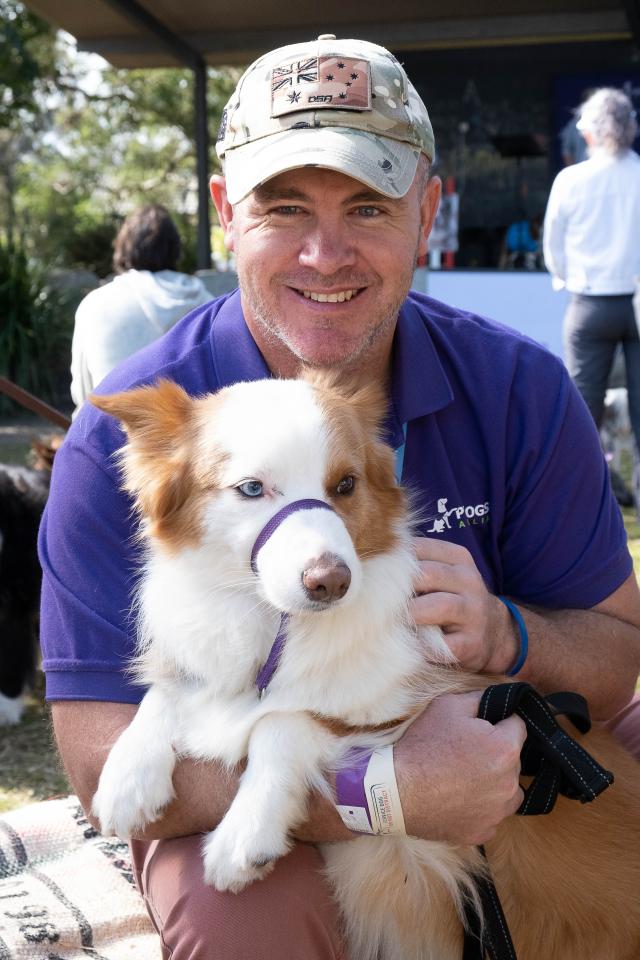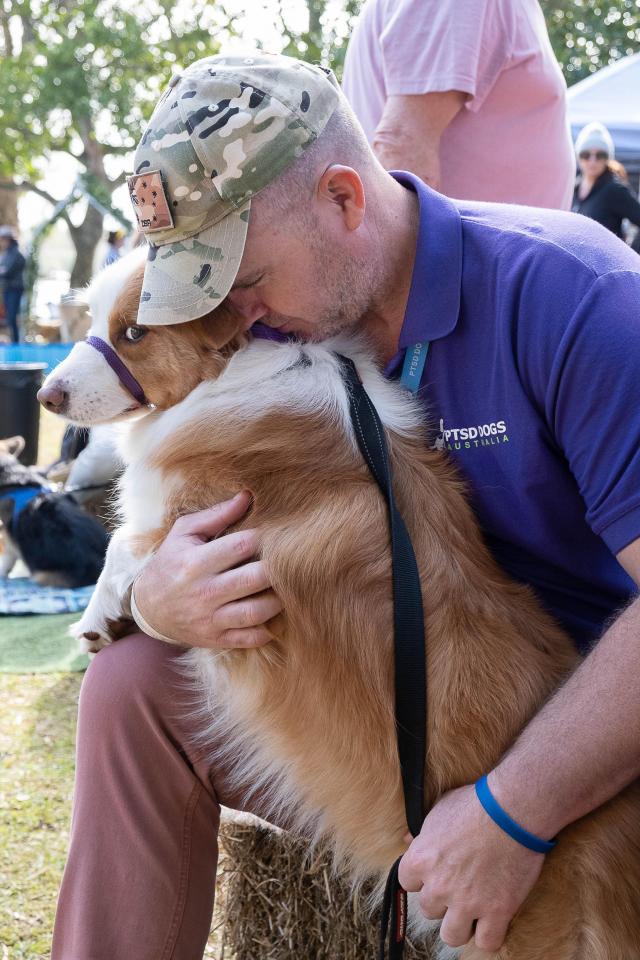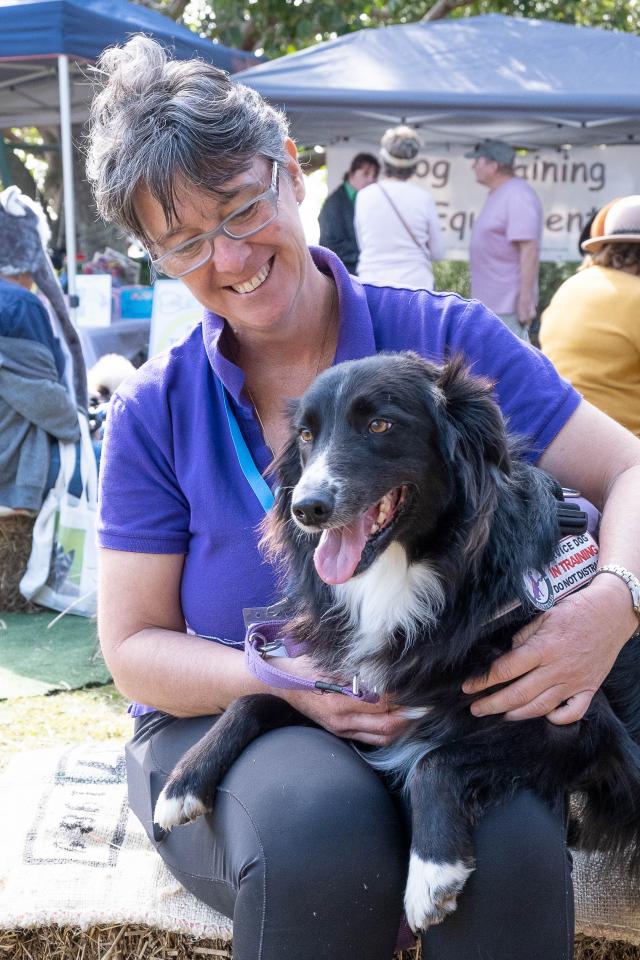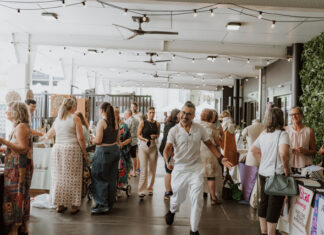It’s four years since PTSD assistance dog Buddy became a companion for Lawrence (Laurie) Cattanach and gave him back his life.
From his time as an army infantry man, Laurie was left with nerve damage down his back and legs and in constant pain.
“I was always angry. I was always in pain. Buddy has learnt to smell my pain. He stops me from overdoing it, from becoming more angry,“ Laurie said.
While being treated for post traumatic stress disorder (PTSD) in the Cooinda mental health clinic Laurie met someone else with an assistance dog and saw the benefits.
His psychologist suggested it might also help him, so when he met PTSD Dogs Australia staff at the Eumundi Markets he started talking to them about it, then volunteering with them.
“Buddy became available. We clicked straight away. He’s barely left my side since,“ Laurie said.
“I’ve got five girls. I lost love from my kids because I was angry. They wouldn’t give me a hug. Buddy always gives me affection even when I’m angry.“
Buddy provides both physical and emotional assistance to Laurie.
Laurie becomes overwhelmed in crowded places but Buddy senses his need for support and calms him by leaning his body into him, pushing against him and resting his front legs over Laurie’s knees.
“He distracts me,“ he said. Buddy’s presence against his legs also provides stability to help his balance.
Because of his nerve damage Laurie wasn’t able to get up from low seats or public toilets, further increasing his anxiety about going out.
But now Buddy has learnt to sit in front so Laurie can lever off him to push himself up.
“I don’t have to worry about going to the toilet,“ he said.
Buddy is one of 20 assistance dogs Noosa-based PTSD Dogs Australia have specially trained for returned servicemen and first-responders suffering from PTSD since the organisation began about four years ago.
Charity founder Angie Weeks said the demand for the dogs was there from day one and was only increasing.
She said three new handlers would soon be starting training with another 10 set to begin next year.
The dogs, many of them rescue dogs, are trained to help people do everyday tasks and activities so they become more independent. The training for each assistance dog is unique and is tailored to suit the needs of the handler.
PTSD Dogs Australia is always in need of donations and foster families.
For more information visit ptsddogs.org.au

